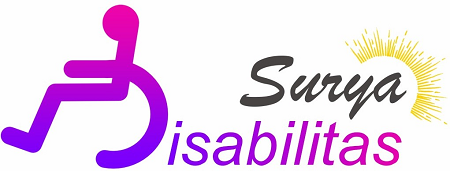Dyslexia is a learning difference that affects the way people process written and spoken language. It can cause difficulties with reading, writing, spelling, and pronunciation. Dyslexia is not a sign of low intelligence or laziness, but rather a different way of learning that requires specific instruction and support.
Fortunately, there are many tools and technologies that can help people with dyslexia achieve their academic and professional goals. These are called assistive technology (AT) devices, and they can be used for remediation or compensation.
Writing
Writing is another essential skill that involves many cognitive processes, such as planning, organizing, composing, revising, and editing. Writing allows us to communicate our thoughts, ideas, opinions, and feelings to others in a clear and coherent way.
Writing is a valuable skill that can benefit you in many ways. By following these tips, you can improve your writing skills and enjoy the process more.
Fortunately, there are many tools and technologies that can help people with dyslexia achieve their academic and professional goals. These are called assistive technology (AT) devices, and they can be used for remediation or compensation.
Remediation means improving the underlying skills that are affected by dyslexia, such as phonological awareness, decoding, and fluency. Compensation means bypassing the challenges of dyslexia and accessing information in alternative ways, such as listening, speaking, or using visual aids.
In this blog post, we will explore some of the best AT devices for dyslexia that can help with reading, writing, spelling, and math. We will also provide some tips on how to choose and use them effectively.
Reading
Reading is one of the most common and essential skills in education and life. However, for people with dyslexia, reading can be frustrating, exhausting, and discouraging. They may struggle with recognizing words, comprehending text, following instructions, or keeping up with assignments.
AT devices for reading can help people with dyslexia overcome these difficulties and enjoy reading more. Some of the most popular AT devices for reading are:
In this blog post, we will explore some of the best AT devices for dyslexia that can help with reading, writing, spelling, and math. We will also provide some tips on how to choose and use them effectively.
Reading
Reading is one of the most common and essential skills in education and life. However, for people with dyslexia, reading can be frustrating, exhausting, and discouraging. They may struggle with recognizing words, comprehending text, following instructions, or keeping up with assignments.
AT devices for reading can help people with dyslexia overcome these difficulties and enjoy reading more. Some of the most popular AT devices for reading are:
- Text to speech
This is a software or app that converts written text into spoken words. It can be used to read any digital text, such as ebooks, websites, emails, or documents. Text to speech can help people with dyslexia improve their comprehension, vocabulary, pronunciation, and motivation to read. It can also reduce eye strain and fatigue from reading. Some examples of text to speech software are Voice Dream Reader, Natural Reader, Read&Write Gold, and ClaroRead.
- Audio books
These are books that are read aloud by a human or synthetic voice. They can be accessed through online platforms or apps, such as Learning Ally, Bookshare, Audible, or OverDrive. Audio books can provide the same benefits as text to speech, but they may also offer more expression, emotion, and engagement. Audio books can be used to supplement or replace printed books for leisure or academic purposes.
- Optical readers:
These are devices that scan printed text and convert it into digital text or speech. They can be used to read hardcopy materials, such as books, newspapers, magazines, or labels. Optical readers can help people with dyslexia access information that is not available in digital format or audio format. Some examples of optical readers are C-Pen Reader Pen, OrCam MyEye 2.0, KNFB Reader App, and Voice Dream Scanner.
Writing
Writing is another essential skill that involves many cognitive processes, such as planning, organizing, composing, revising, and editing. Writing allows us to communicate our thoughts, ideas, opinions, and feelings to others in a clear and coherent way.
Writing also helps us to learn new information, develop critical thinking skills, and express our creativity.
However, writing is not always easy or enjoyable. Many people struggle with writing for various reasons, such as lack of motivation, confidence, or feedback. Some people may experience writer's block, which is the inability to start or continue writing due to mental or emotional factors.
However, writing is not always easy or enjoyable. Many people struggle with writing for various reasons, such as lack of motivation, confidence, or feedback. Some people may experience writer's block, which is the inability to start or continue writing due to mental or emotional factors.
Others may face challenges with grammar, spelling, punctuation, or vocabulary. Writing can also be stressful and time-consuming, especially when we have to meet deadlines or expectations.
Fortunately, there are many strategies and resources that can help us improve our writing skills and overcome the difficulties we may encounter. Here are some tips that can help you become a better writer:
Fortunately, there are many strategies and resources that can help us improve our writing skills and overcome the difficulties we may encounter. Here are some tips that can help you become a better writer:
- Read a lot
Reading can expose you to different styles, genres, and topics of writing. Reading can also expand your vocabulary, improve your comprehension, and inspire your own writing.
- Write regularly
Writing is a skill that requires practice and discipline. Writing regularly can help you develop your writing habits, hone your skills, and discover your voice. You can write about anything that interests you, such as your hobbies, experiences, goals, or opinions.
- Seek feedback
Feedback is essential for improving your writing. Feedback can help you identify your strengths and weaknesses, correct your errors, and refine your ideas. You can seek feedback from different sources, such as teachers, peers, tutors, or online tools.
- Revise and edit
Revising and editing are important steps in the writing process. Revising involves making changes to the content, structure, and organization of your writing. Editing involves checking and correcting the grammar, spelling, punctuation, and formatting of your writing. Revising and editing can help you improve the quality and clarity of your writing.
- Enjoy the process.
Writing can be fun and rewarding if you enjoy the process. Writing can allow you to express yourself, explore your imagination, share your knowledge, and connect with others. Writing can also give you a sense of accomplishment and satisfaction when you finish a piece of writing.
Writing is a valuable skill that can benefit you in many ways. By following these tips, you can improve your writing skills and enjoy the process more.


Post a Comment for "Accessible Technology for Dyslexia"